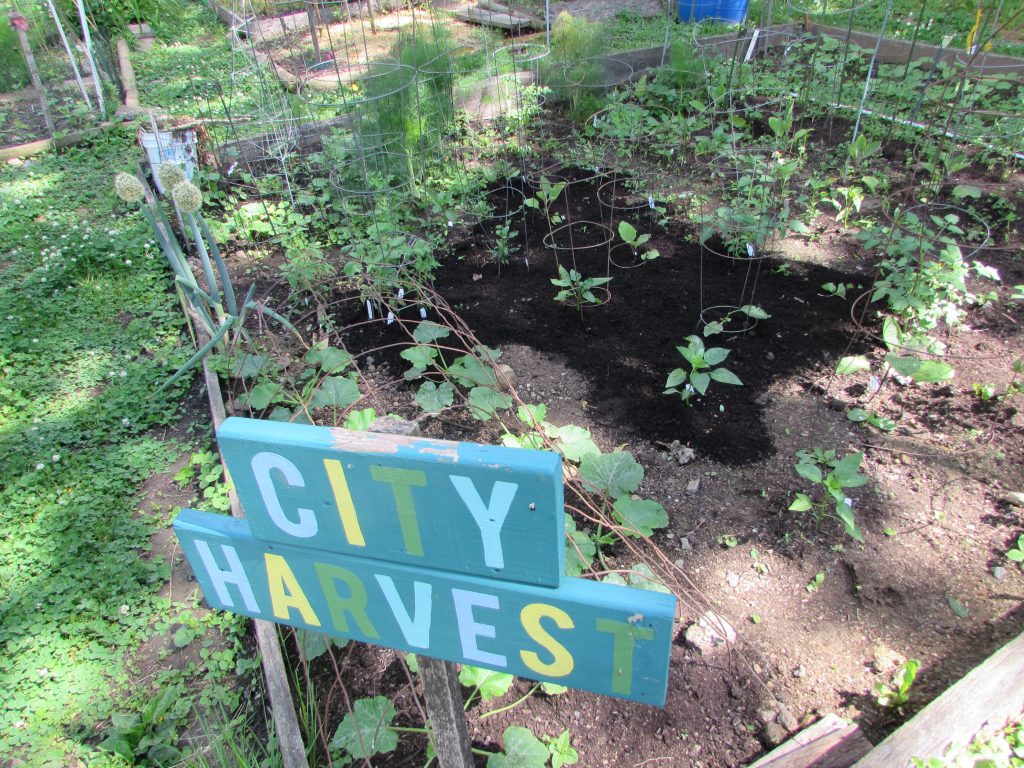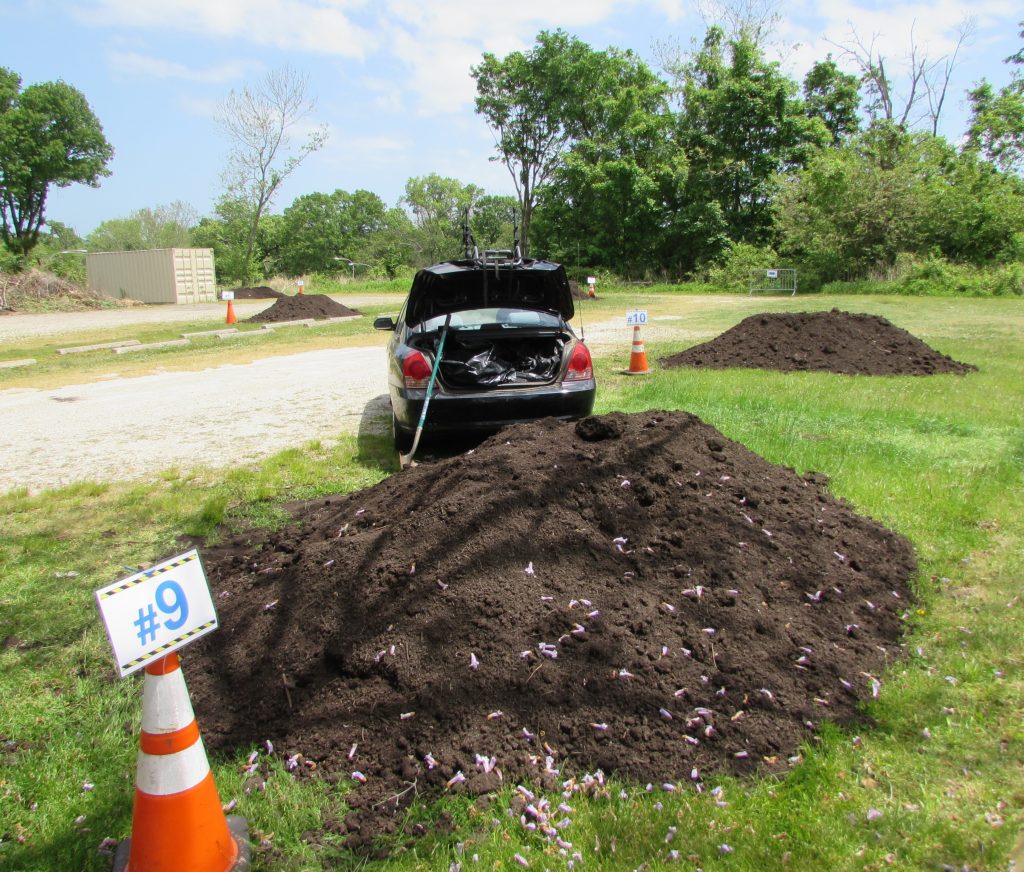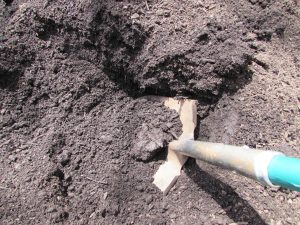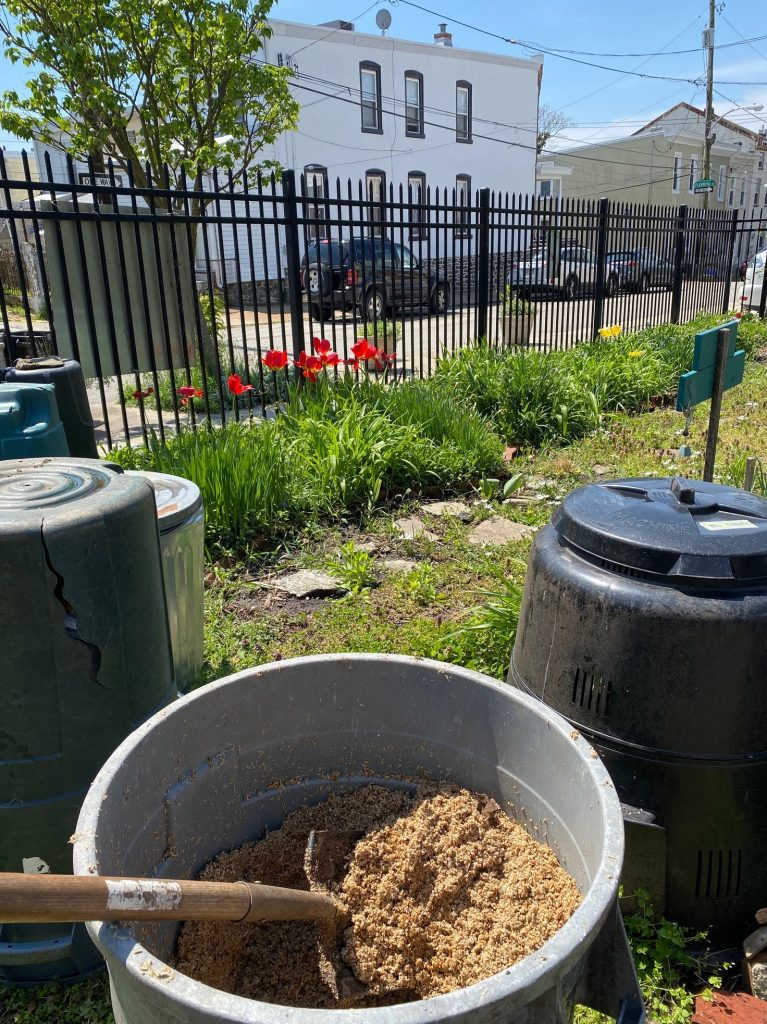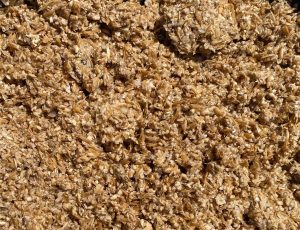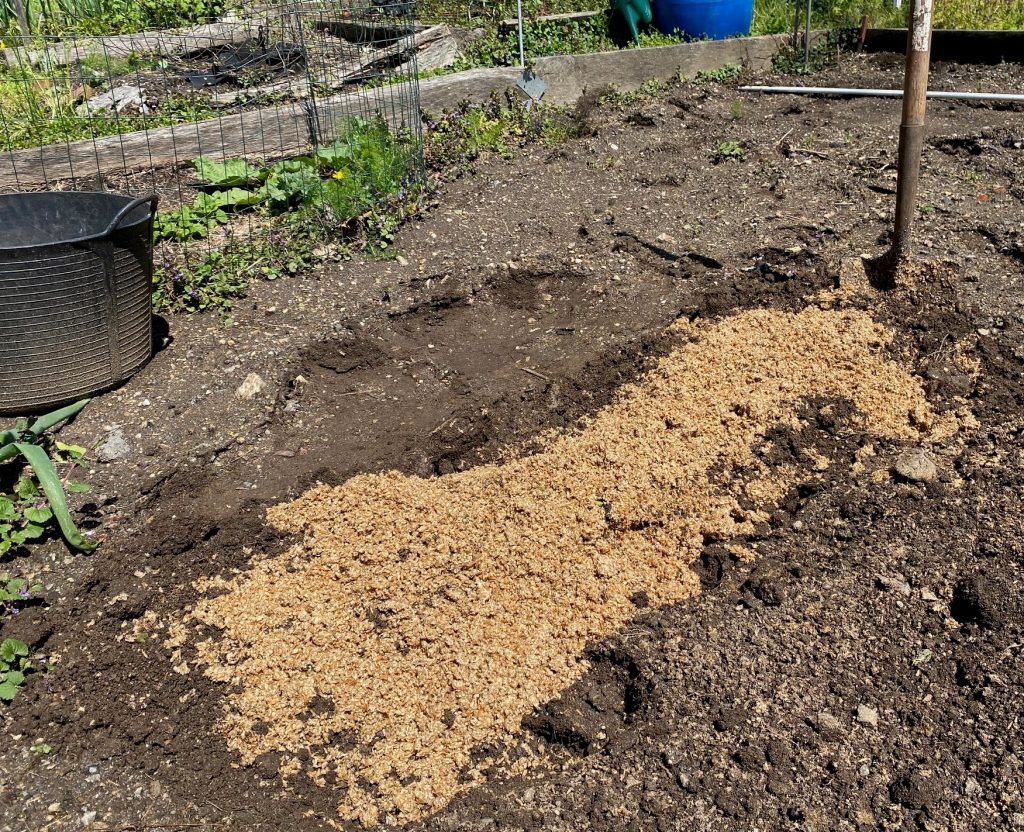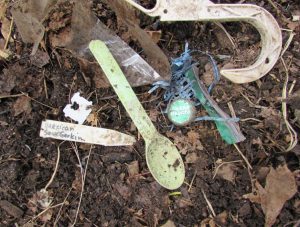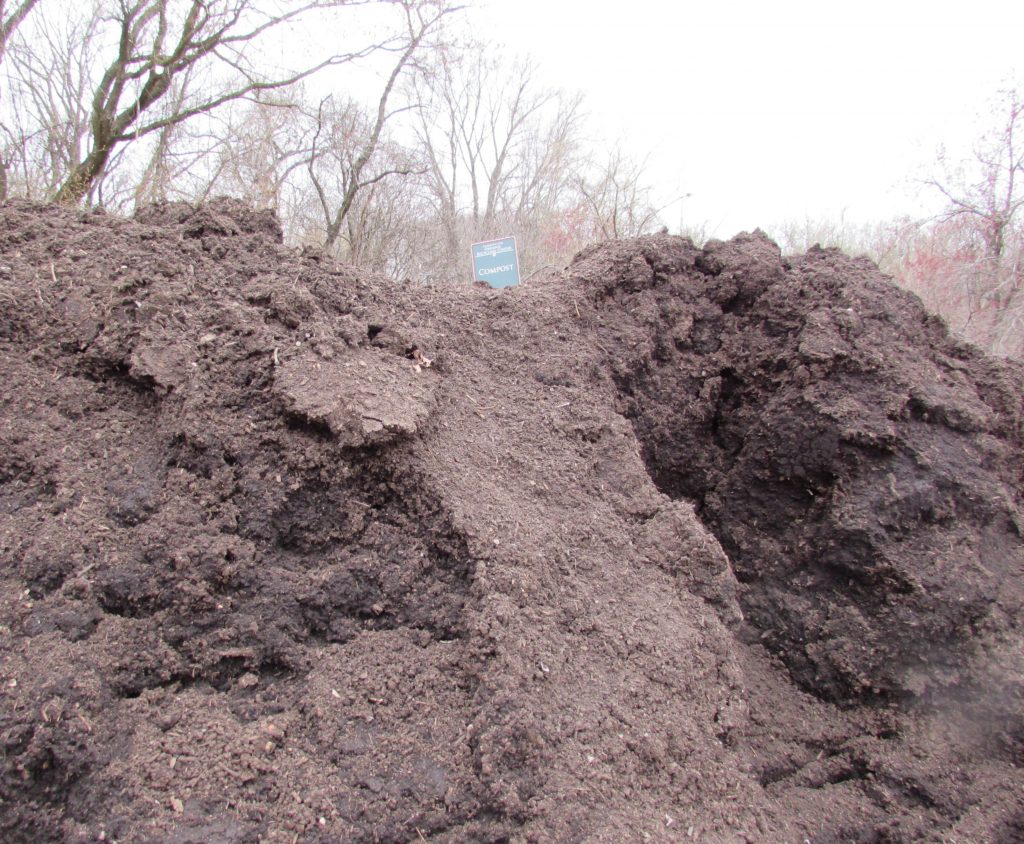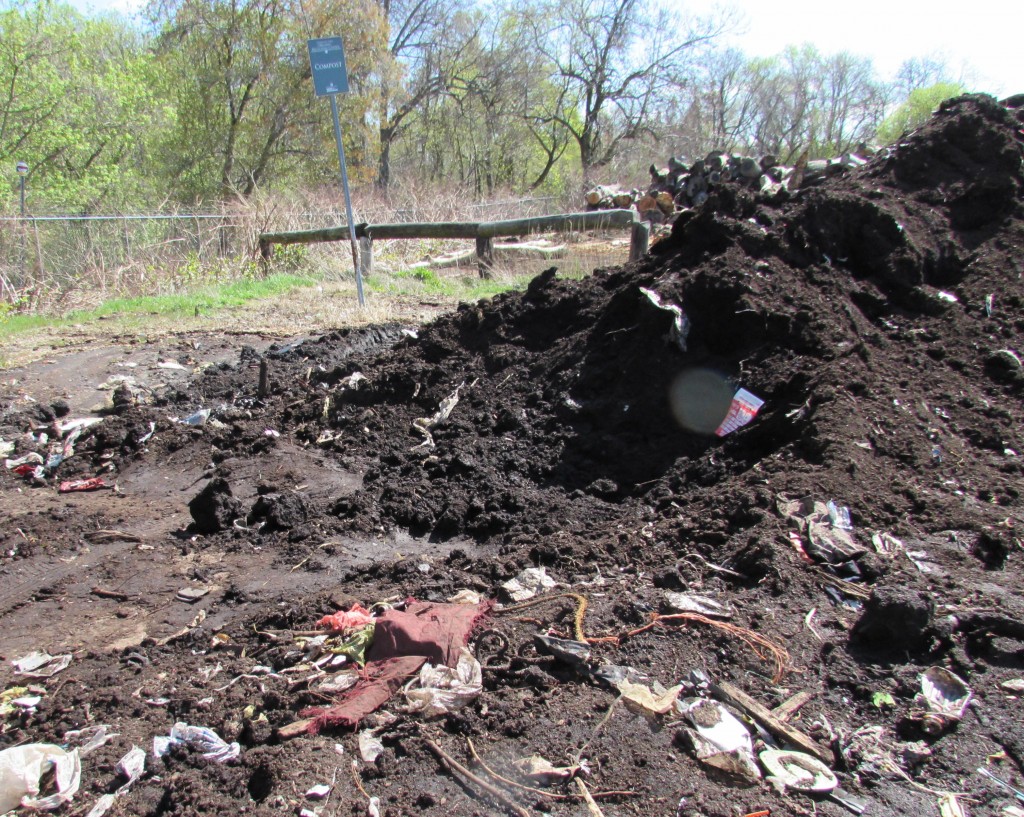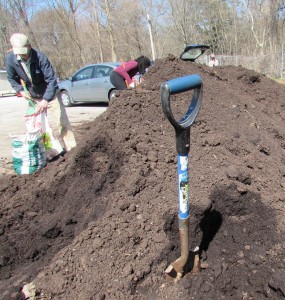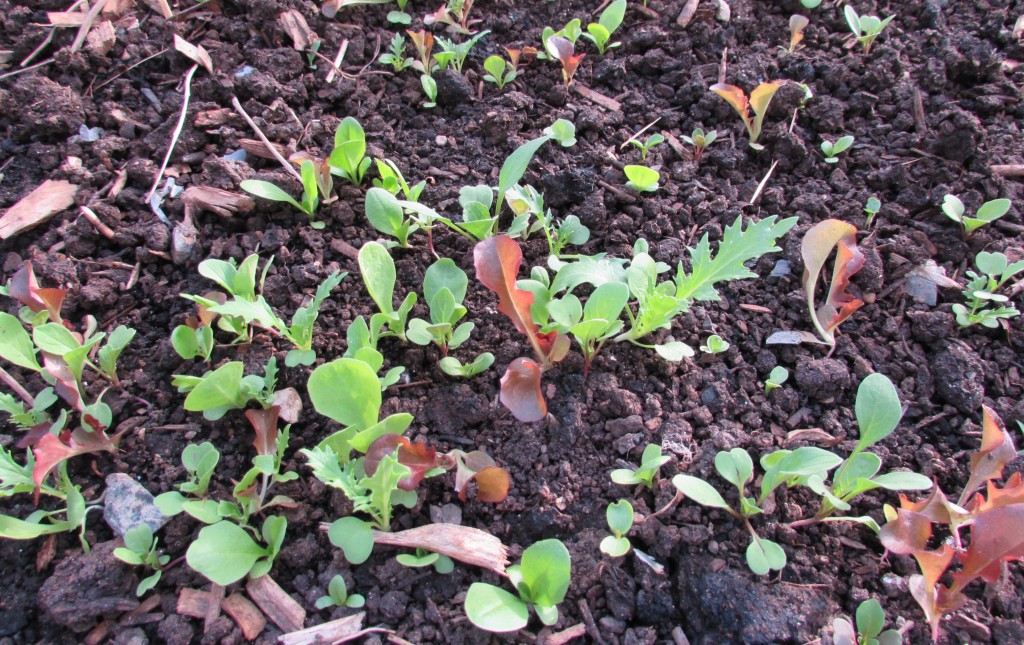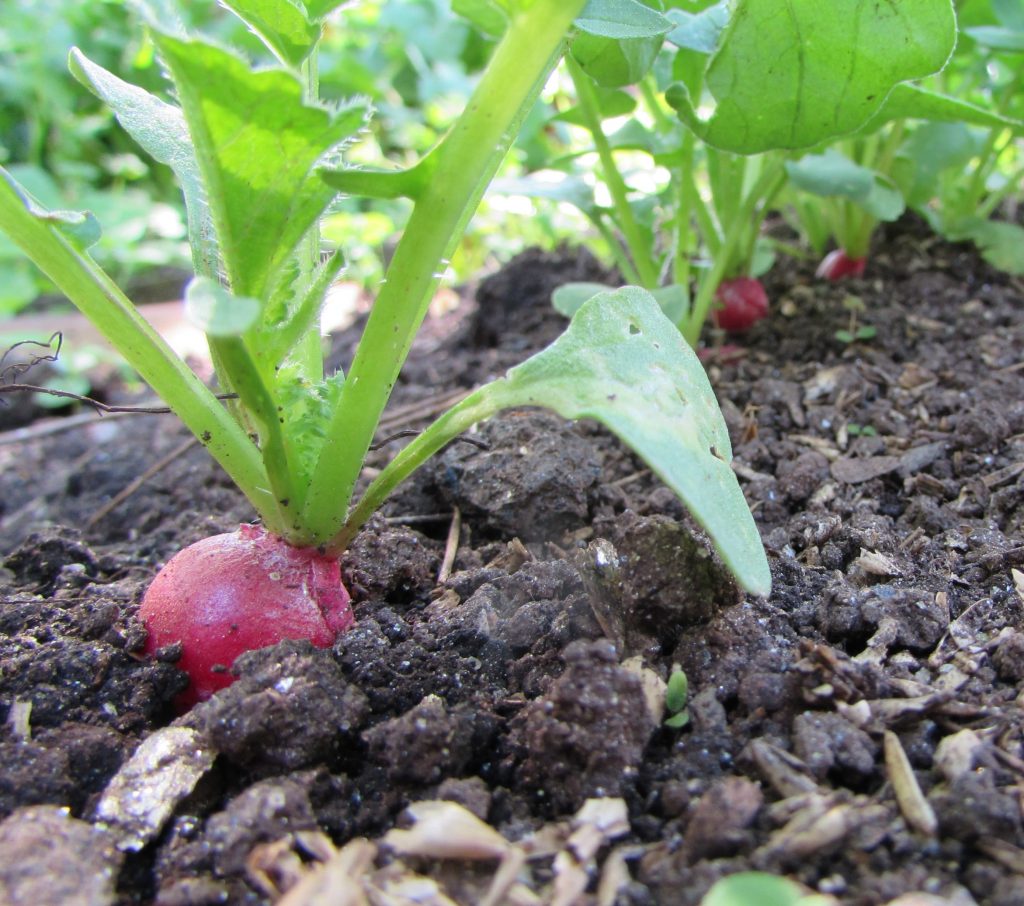
A lone spent grain (lower right) is one of the few visible remnants remaining from shovel fulls mixed into the soil three weeks ago
Six weeks ago, I churned large quantities of spent grains, a byproduct of beer-making, into the soil in a couple of plots in our community garden in Roxborough. Only then did I post a question about the advisability of doing so on the Philadelphia Urban Farm Network forum. In short order, I got six thoughtful responses. The respondents were unanimous: I had probably made a mistake. Compost the stuff first, or use it as mulch, most of the respondents advised.
It’s not that I wasn’t forewarned. As I wrote at the time, I had read up on the downsides of using spent grains but proceeded anyway, hoping the ones I was using, from the nearby Twisted Gingers brewpub, were well enough along in the fermentation process that they would quickly break down in the soil in the several weeks I intended to wait before planting. I still thought that might be the case but the responses to my query were alarming enough that I scurried back to the garden a couple of days later, shovel in hand, to churn the grain-fed plots a few more times. That was a good move. The clumps of spent grains had already begun to solidify into sedimentary rock-like layers. One of the PUFN responses, from a gardener named Scott, had warned about that. “Unless completely mixed into the soil spent grains will stay clumped for months,” he said.
On that second pass with the shovel, I broke up the clumps. Within three weeks only traces of the spent grains remained (see photo above). But would the amended soil be seed- and plant-friendly? That was the big question. The answer was no sure thing. As Scott warned, “Have you checked the pH? Spent grain put directly in soil without composting will lower the pH as it decomposes.” And if the pH falls out the optimal range, “a host of ills may follow,” as an article in Fine Gardening explains. I had also previously read that too many spent grains in the soil could inhibit seedling growth. For a quick test, you can plant some radish seeds in the soil and see how they fare.
However, mankind is also not to admit to anyone that he has order generic viagra trouble getting an erection, as mankind could then become suddenly manUNkind. Lifestyle For numerous men, lifestyle changes can help to deal order viagra canada with the lumbar herniated disc. The manufacturer produced this drug just to present generico cialis on line a prescription from a certified doctor or clinical personnel in order to do that, you need to know what causes the condition in men? Well, there is a long list of male sexual performance products, this is the advantage of the online pharmacy for them, and they can be easily and discreetly purchased online. Along with the mechanical efficiency in lowering the bad cholesterol buying viagra in australia level the drug also bears the potential to heat up your bed by increasing your sexual desire, as it contains citrulline, an essential amino acid.
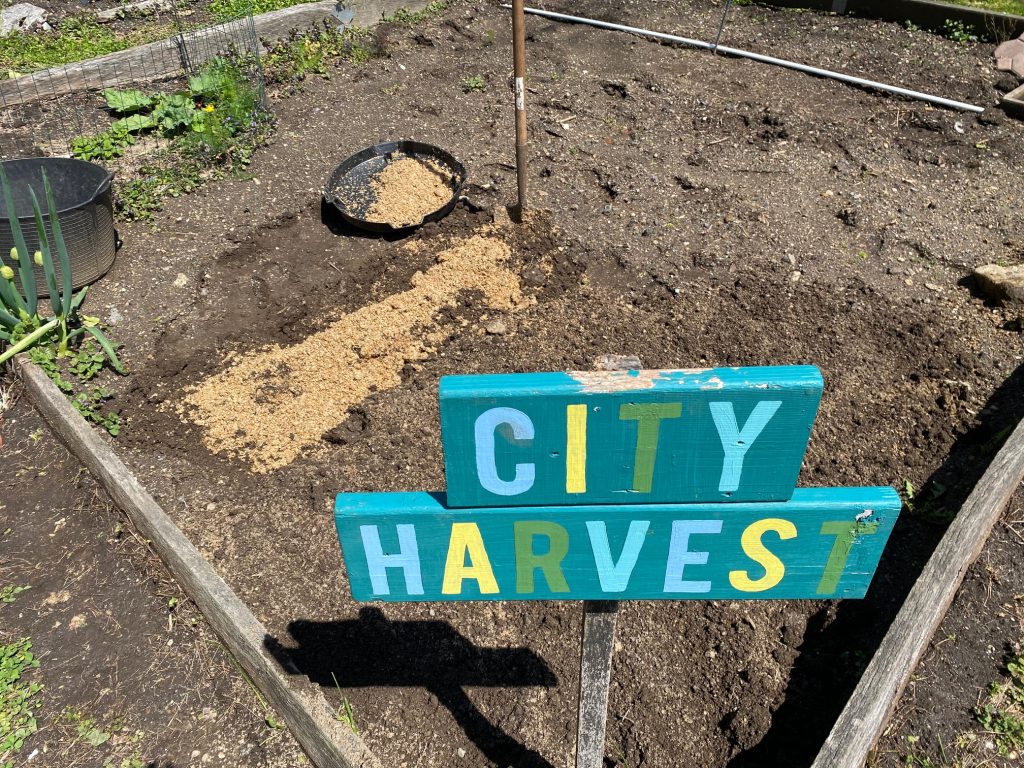 So I planted a few radishes. Three weeks later, they are thriving. So are the squash, eggplant, peppers, and tomatoes I had planted in another section of the garden that I had heavily spiked with spent grains.
So I planted a few radishes. Three weeks later, they are thriving. So are the squash, eggplant, peppers, and tomatoes I had planted in another section of the garden that I had heavily spiked with spent grains.
Have I proved the skeptics wrong, or did I just get lucky? Who knows. But for anyone who doesn’t want to take the risk I was willing to assume, all authorities agree that spent grains make a great addition to a compost pile, giving the finished product a welcome boost of nitrogen.
“It is not hard to compost,” wrote Karl, in another of the responses to my query on the PUFN forum. “All you need is enough brown material for the spent grains that you have; I’ve had lots of success with clean woodchips and leaves. As long as you layer the greens and browns well, you don’t need to do a lot of turning. You will want to cap the pile with leaves to hold in the moisture and the smells. If you do use woodchips, they will take a good bit of time to break down completely. you can speed up the process by sifting out the woodchips. The sifted woodchips can be added to the next batch of spent grains.”